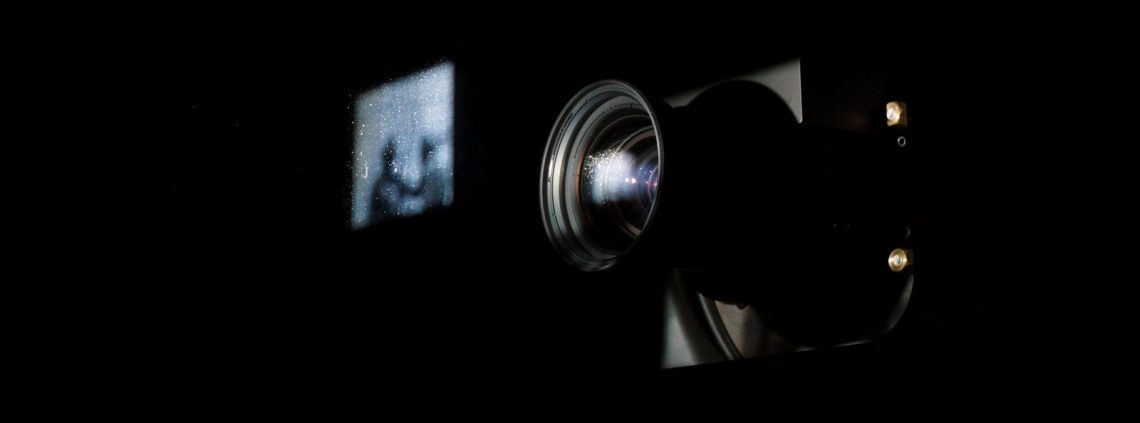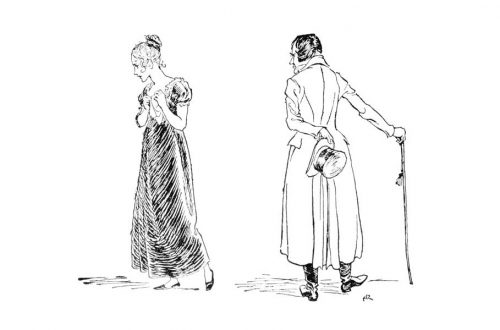by Matt Axvig
I don’t want to get adjusted to this world.
Iris DeMent
The specific character of despair is precisely this: it is unaware of being despair.
Søren Kierkegaard, The Sickness Unto Death
Though the movies are “on to the quest,” says Binx Bolling, “they screw it up.”
Consider this mixed review of the cinema from the unremarkable protagonist-narrator of Walker Percy’s The Moviegoer an introduction to a philosophical journal of sorts that we get to eavesdrop upon. In the first place, he says, movies get it wrong because they get love wrong. If it were the movies, something extraordinary would happen to set one up with the woman who just sat down across the aisle, but as it is, real life goes on without cinematic intervention:
Our eyes meet. Am I mistaken or does the corner of her mouth tuck in ever so slightly and the petal of her lower lip curl out ever so richly? She is smiling–at me! My mind hits upon half a dozen schemes to circumvent the terrible moment of separation. No doubt she is a Texan. They are nearly always bad judges of men, these splendid Amazons. Most men are afraid of them and so they fall victim to the first little Mickey Rooney that comes along. In a better world I should be able to speak to her: “come, darling, you can see that I love you.” If you are planning to meet some little Mickey, think better of it. What a tragedy it is that I do not know her, will probably never see her again. What good times we could have! This very afternoon we could go spinning along the Gulf Coast. What consideration and tenderness I could show her! If it were a movie, I would have only to wait. The bus would get lost or the city would be bombed and she and I would tend the wounded. As it is I may as well stop thinking about her…
As the bus ascends the overpass, a concrete hill which affords a fine view of New Orleans, I discover that I am frowning and gazing at a noble young calf clad in gun-metal nylon. Now beyond question she is aware of me: she gives her raincoat a sharp tug and gives me a look of annoyance–or do I imagine this? I must make sure, so I lift my hat and smile at her as much as to say that we might still become friends. But it is no use. I have lost her forever. She flounces out of the bus in a loud rustle of cellophane.
It is not just that the movies set love up too nicely. More importantly, it is that they end too early. They actually should begin just at the point when they end. Binx Bolling has not had conquests exactly, or at least he hesitates to call them that. He does enjoy short flings with his secretaries (he is a stockbroker). These relationships have played out not so differently as in the movies. After the initial interest and the triumph of a weekend on the picturesque Gulf Coast, these relationships have faded into ordinary office romances. Okay, the movies don’t quite get that far. But if Binx Bolling had his way, they might. To his credit, the everyday office romance has its own interest and appeal. It’s just that he can’t get a relationship to endure. Perhaps it is the women who say, “It’s not you, it’s me,” the disenchantment just too dry to swallow. Binx Bolling, after all, has a peculiar relationship with everydayness. He settles into it better than most precisely because he does not expect to be wholly settled. On the contrary, he gets nervous as soon as people look at him expectantly, saying “Isn’t this grand now? Aren’t we happy? This here is it – the real thing!” Instead, the thin reality of the suburbs suits him, though as a moviegoer he is in danger, he realizes, of slipping out of spacetime altogether.
His aunt once suggested he move back in with them in the French Quarter and go to medical school, implying that his four years in Gentilly were a kind of suburban spree before getting serious about life. Likewise his father had toured Europe before taking up medicine. This construal revolted him. No, his sojourn in Gentilly was about the search, though he does not elaborate. I think it was that he was claustrophobic in the Old World, which by presuming to suffice for life, left no room for his search.
I can’t stand the old world atmosphere of the French Quarter or the genteel charm of the Garden District…My uncle and aunt live in a gracious house in the Garden District and are very kind to me. But whenever I try to live there, I find myself first in a rage during which I develop strong opinions on a variety of subjects and write letters to editors, then in a depression during which I lie rigid as a stick for hours staring straight up at the plaster medallion in the ceiling of my bedroom.
The “Christendom” of New Orleans collapses the difference between the City of Man and the City of God, the already and the not yet of the kingdom come. To modify Augustine slightly, our hearts must remain restless until they find rest in Thee – otherwise, we are dead already. This holds true for the suburbs as well. As Kierkegaard would put it, the suburbs lack finitude, for what is Gentilly but a nowhere graced with a name? Whereas the despair characteristic of the city, the French Quarter, stems from a lack of infinitude, as seen in Binx Bolling’s claustrophobia. Neither the city nor the suburbs can fully be home.
He contrasts the Old World with where he settles (not to say settles down) in the suburbs:
For the past four years now I have been living uneventfully in Gentilly, a middle class suburb of New Orleans. Except for the banana plants in the patios and the curlicues of iron on the Walgreen drugstore one would never guess it was part of New Orleans. Most of the houses are either old-style California bungalows or new-style Daytona cottages. But this is what I like about it. I can’t stand the old world atmosphere of the French Quarter or the genteel charm of the Garden District… We live, Mrs. Schexnaydre and I, on Elysian Fields, the main thoroughfare of Faubourg Marigny. Though it was planned to be, like its namesake, the grandest boulevard of the city, something went amiss, and now it runs an undistinguished course from river to lake through shopping centers and blocks of duplexes and bungalows and raised cottages. But it is very spacious and airy and seems truly to stretch out like a field under the sky.
Space, air, field, and sky–these are the habitat for a soul not entirely acclimated to this world and one, moreover, determined never to become sunk in everydayness, but to have some self “left over” above and beyond career, marriage, money, culture, Mardi Gras fraternities and whatever else people do to give their lives meaning. There is no search without divine discontent. Like he said,
The movies are on to the search, but they screw it up. The search always ends in despair. They like to show a fellow coming to himself in a strange place–but what does he do? He takes up with the local librarian, sets about proving to the local children what a nice fellow he is, and settles down with a vengeance. In two weeks’ time he is so sunk in everydayness that he might just as well be dead.
This is a reference to the film Binx Bolling is watching at the opening of the book. The fellow in the film who comes to himself in a strange place is an amnesiac who has suffered an accident and now has to start all over. But after the hardship, it works out eventually, because like Job, he is blessed with a new life. On the other hand, it is all-too-easy – to be so commensurable with life in the present age that after losing everything one so readily does it all over again, undisturbed about what for.
Granted, this despair is not really the amnesiac’s fault per se, but more a limitation on the part of the movie telling his story. The movies tend to conceive of despair, as they do of love, in terms of external obstacles that are overcome, end-of-story. So they gloss over our existential amnesia, and they confuse our actual despair (our wrong relation to God, self, and world) with felt despair. As Binx Bolling sees it, this apparent comedy is really the tragedy of man accustomed to despair. The man may have regained the world, but it turned out he never had a soul if his predicament is reducible to [re]obtaining the American Dream. A deeper tragedy and more sublime comedy would necessitate, paradoxically, a despairing over oneself in despair. To have despaired is prerequisite for beginning the search. Despair makes us turn the page.

Matt Axvig is a teacher from Minneapolis, MN and father of two boys and two girls. He enjoys driving (sometimes aimlessly) and listening to music. He loves playing tennis and wakes up in the middle of the night to watch the Australian Open every January. He dreads Roger Federer’s retirement. And midway through his life’s journey, he takes satisfaction in having made several leaps of faith – going away to college in Chicago, majoring in philosophy, getting married and having children, living abroad in Peace Corps Moldova, quitting jobs with nothing lined up, switching careers, and joining the Eastern Church.






2 Comments
Abbey
I am so fired up to read this book now!
Pingback: